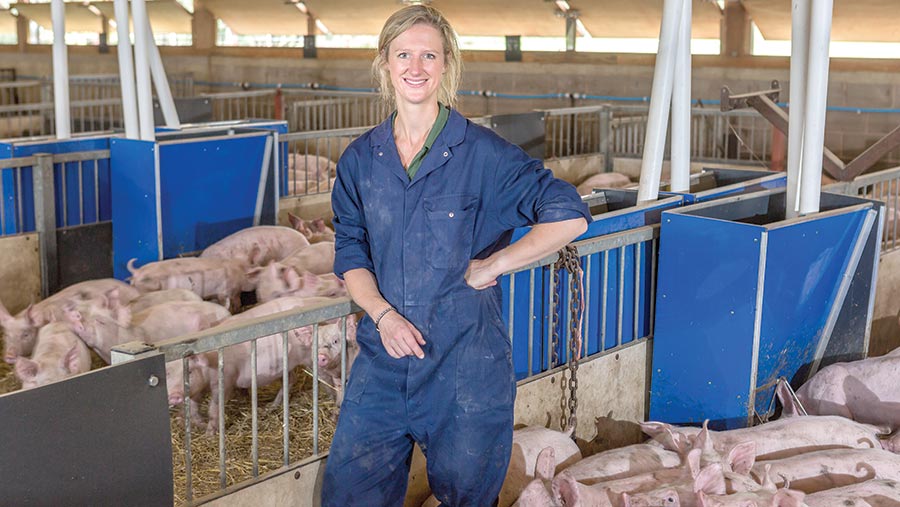Farmer Focus: There’s no universal fix for tail biting
 © Richard Stanton
© Richard Stanton Last month we did our refresher training with the George Vet Group on standard operating procedures, covering things such as injecting, euthanasia and slap marking. It was an excellent day.
The training was timely, as it coincided with the release of the new code of practice for the welfare of pigs. The code documents legal requirements and advice on keeping pigs for farmers and enforcement bodies.
A lot of the code is already being implemented, but some changes are significant, such as the phasing out of farrowing crates, which I’ve discussed before.
See also: What tougher tail docking inspections mean for pig farmers
Another big change involves tail docking. Routine docking is not allowed and should only be a last resort, after changes to management and the pigs’ environment have proved ineffective.
Although routine docking of pigs has not been permitted for some time, farmers will now have to document all cases of tail biting and record what management actions have been taken to continue docking and avoid penalties.
While I am fully in favour of all of this in principle – none of us want to dock tails – in practice it isn’t as simple. We dock our pigs, have trialled putting undocked pigs through the system and have been recording outbreaks and interventions for some years.
Sometimes there is an obvious reason for a tail-biting outbreak – different genetics – but not always. The causes of tail biting are multifactorial and difficult to predict.
A change that brought an improvement in one batch might not work in a different batch.
Of course, tail docking is a preventative action rather than a cure and it’s almost impossible to predict which batches, pens or animals might succumb to an outbreak, so how can we tailor our management to suit?
This whole area is one that definitely needs to be addressed industry wide.
If there was an easy answer, I’m pretty confident most farmers would not be docking at all.
In the absence of a crystal ball and a silver bullet, we will continue to trial pens with long tails, document outbreaks and interventions and improve our system where we can
to reduce outbreaks.
Sophie Hope is a Farmer Focus writer from near Cheltenham. Read her biography
